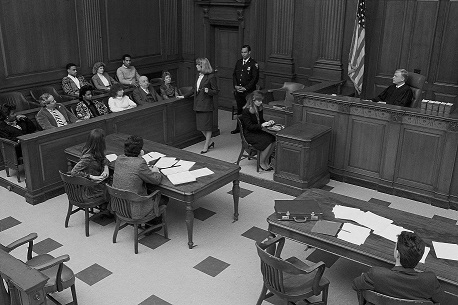The Stages of Discovery: A Comprehensive Guide
Posted on October 5, 2023 in UCC AND CONTRACT LAW
Discovery is the process by which parties to a lawsuit gather information from each other. It is an essential part of the legal process, as it allows both sides to learn about the other side’s case and to prepare for trial.
There are four main stages of discovery:
- Initial Disclosures: This is the first stage of discovery, and it is when the parties exchange basic information about their cases. This information may include the names and addresses of witnesses, copies of relevant documents, and a statement of the facts of the case.
- Depositions: A deposition is a sworn statement that a witness gives outside of court. The deposition is taken by an attorney, and it is transcribed by a court reporter. The deposition can be used at trial to impeach the witness’s testimony or to refresh the witness’s memory.
- Interrogatories: Interrogatories are written questions that one party sends to the other party. The other party is required to answer the interrogatories in writing, under oath. Interrogatories can be used to obtain information about the other party’s case, such as the names and addresses of witnesses, copies of relevant documents, and the other party’s version of the facts of the case.
- Requests for Production of Documents: A request for production of documents is a written request that one party makes to the other party to produce copies of relevant documents. The other party is required to produce the documents, unless they are privileged. Requests for production of documents can be used to obtain a variety of information, such as medical records, financial records, and business records.
The discovery process can be complex and time-consuming. However, it is an essential part of the legal process, and it is important for both parties to comply with their discovery obligations.
Tips for Managing Discovery
Here are some tips for managing discovery:
- Be organized. Keep track of all discovery requests and responses. This will help you to ensure that you meet all deadlines and that you have all of the information that you need to prepare for trial.
- Be cooperative. Respond to discovery requests promptly and completely. If you are unable to produce a requested document or answer a question, explain why. This will help to avoid unnecessary disputes with the other party.
- Be prepared for negotiation. Discovery is often a process of negotiation. Be prepared to compromise on some issues in order to get the information that you need.
- Seek legal advice. If you have any questions about discovery, or if you are having difficulty complying with a discovery request, consult with an attorney.
Conclusion
Discovery is an important part of the legal process. By understanding the stages of discovery and by following the tips above, you can manage discovery effectively and efficiently.
If you are looking for a Phoenix litigation firm to help you with a case, contact us today. We have a team of experienced fraud attorneys who are ready to fight for your rights. Bill Miller can help you navigate the legal system and protect your rights. Contact Bill by calling 602-319-6899 to ensure your legal needs are conducted with confidence and legal clarity. Some of the issues covered under trial work and business law that our firm regularly handles involve:
Breach of contract, Non-compete agreements, Non-disclosure agreements, Employee theft and embezzlement, Insurance purchases and enforcement of policy coverage, Negotiation and/or enforcement of commercial leases, Negligence and gross negligence resulting in losses, Intentional acts causing a company to suffer damages, Tortious interference with contractual relationships, Unjust enrichment, Real Estate fraud, Consumer fraud, Conversion/Theft, Intentional and/or negligent misrepresentation, Business torts and Real estate title & escrow.